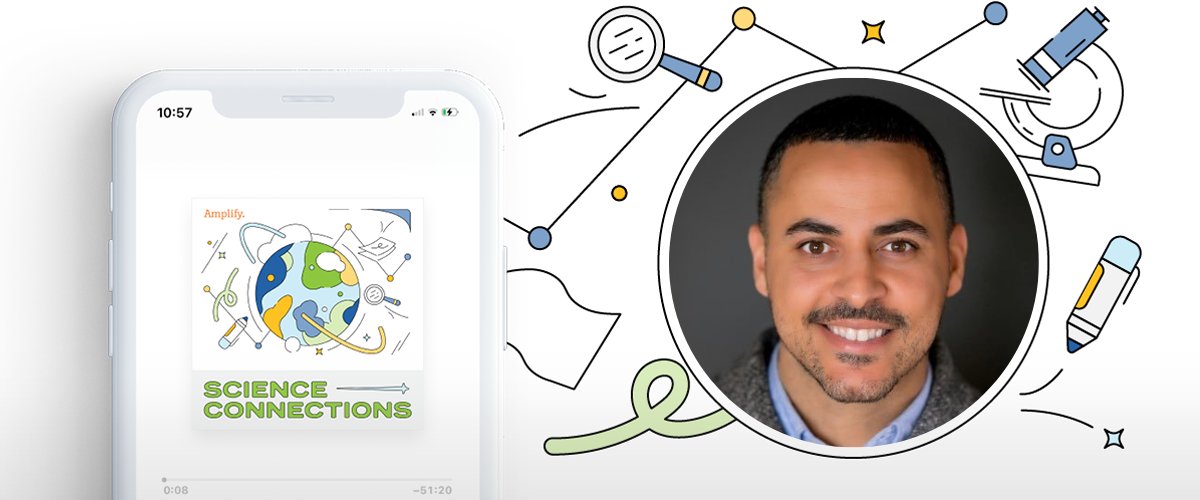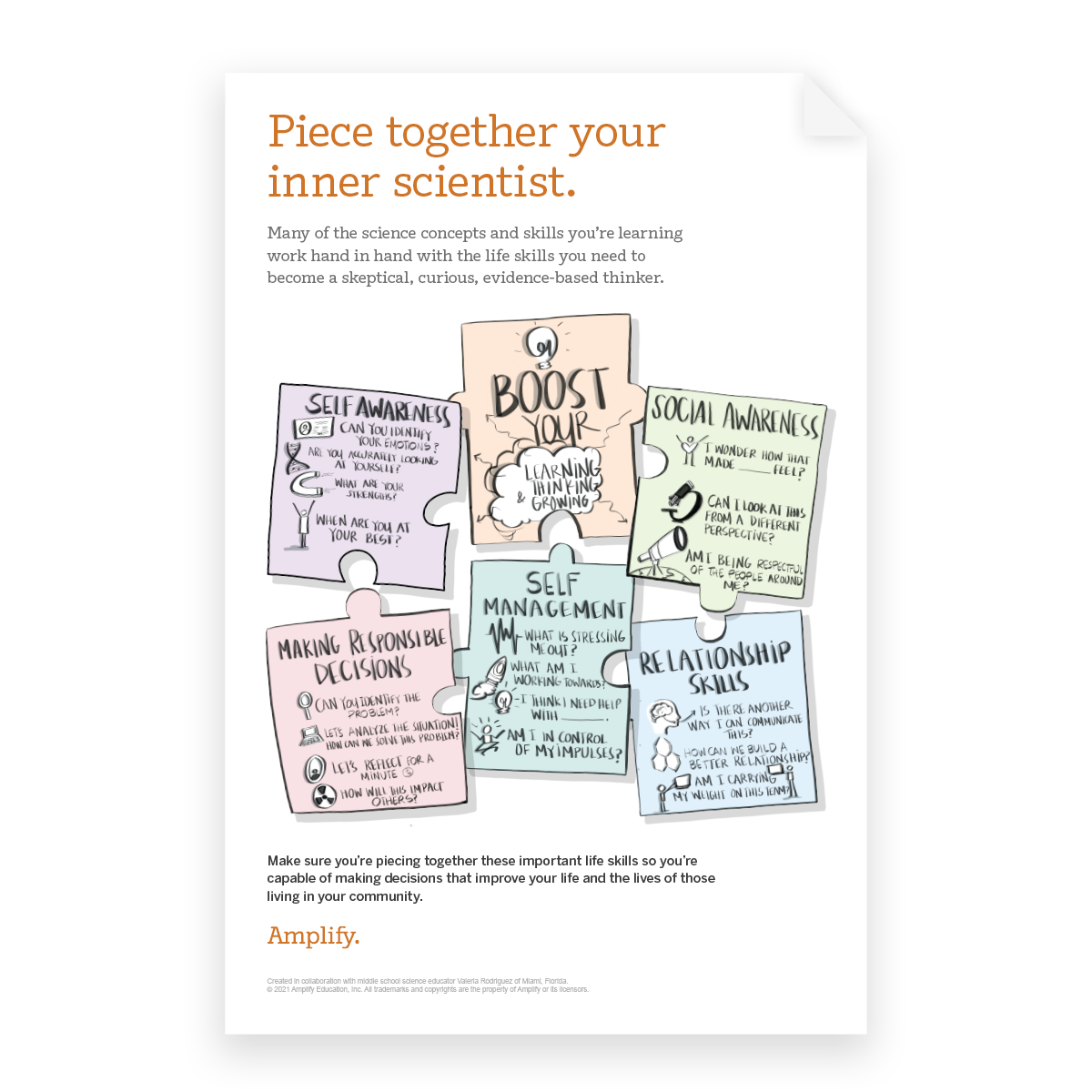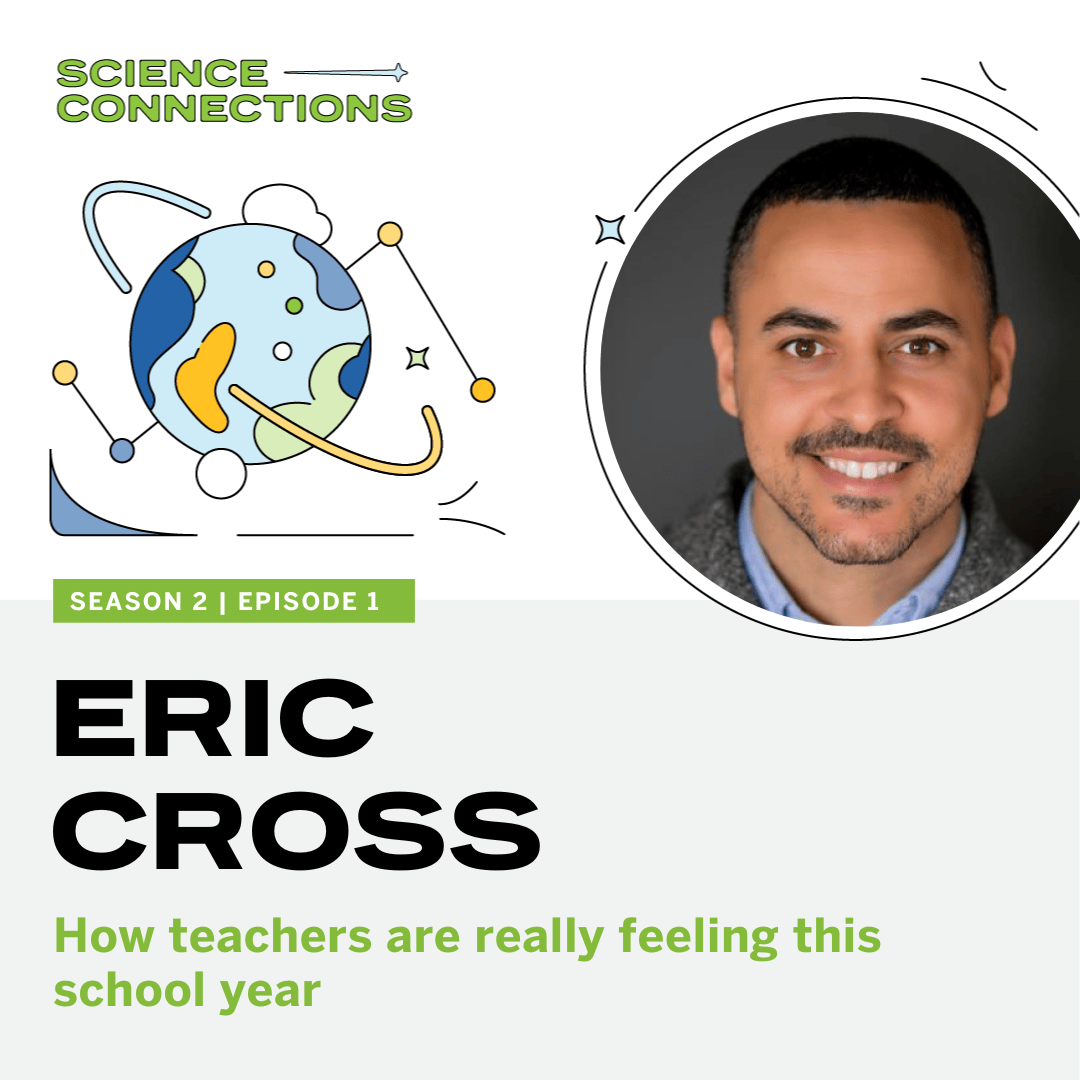
ČČę§│╔╚╦░µapp podcast host and science teacher Eric Cross explores the challengesŌĆöand winsŌĆöin schools
In this episode of Science Connections: The Podcast, host Eric Cross does things a little differently. Rather than chatting with a guest, Cross takes the mic solo to answer the questions he usually asks his guests.
First, he recounts his own journey to teachingŌĆöfrom brief homelessness to finance to the science classroom. Then, he shares his answers to a current burning question:
How has teaching changed as a result of the pandemic?
There are lots of answers, says Cross. ŌĆ£This could be several podcasts in and of itself. ItŌĆÖs also regional, because everybodyŌĆÖs experienced it differently. Some places have innovated and pivoted. Some places just did what they needed to and they are trying to go back to business as usual. And weŌĆÖre still experiencing it!ŌĆØ
Read this recapŌĆöand listen to the episodeŌĆöto learn how Cross and his peers see the future of hybrid and personalized learning. YouŌĆÖll also hear his thoughts on how to go from teacher burnout to teacher inspiration.
Current shifts and revelations in education, from the perspective of a science teacher:
1. More than ever, schools are going beyond content learning.
This has been true for a while, but the pandemic revealed and even increased schoolsŌĆÖ ever-expanding role. ŌĆ£For many students, school is where they have their only community, their structure, their emotional wellness,ŌĆØ notes Cross. ŌĆ£They get regular meals, access to tech, and adults that care about them that are outside of their family.ŌĆØ
2. Educator workload is even more intense.
More than ever, says Cross, ŌĆ£You need to be a content expert, a counselor, a trauma-care specialist, a coach, an encourager, a tech expert.ŌĆØ The role of mental health in learning has become even more evident. ŌĆ£How a child feels about themselves, their safety, and their security impacts their ability to learn. So the more comfortable and safe a student feels, the better they learn. And, ultimately, the higher theyŌĆÖre gonna be able to achieve. You canŌĆÖt have one without the other.ŌĆØ
3. Fewer teachers see themselves teaching forever.
ŌĆ£I read these articles about ŌĆśteacher shortagesŌĆÖ and I think the reality is itŌĆÖs ŌĆśteacher exodus,ŌĆØ says Cross. ŌĆ£And thatŌĆÖs been difficult. I got a text three days ago from a teacher who said, ŌĆśMy goal this year is to just not resign.ŌĆÖ And thatŌĆÖs how a lot of teachers are feeling right now, isolated, challenged, and under-appreciated.ŌĆØ
4. Educational inequity has become more obvious.
ŌĆ£Now the public can see how our kids donŌĆÖt receive the same quality of education,ŌĆØ says Cross. ŌĆ£Once you see on Zoom or on the news that students in different areas, whether itŌĆÖs rural South or a suburb in Seattle, are not getting equitable educations, ultimately that impacts all of us.ŌĆØ
5. WeŌĆÖre closing some of the technology gap.
ŌĆ£A lot of schools and districts did an amazing job with deploying hardware, sending out buses with wifi, putting lessons and videos on USB sticks and dropping them off to parents in sparsely populated areas. IŌĆÖve heard so many stories about schools and teachers going above and beyond on behalf of kids.ŌĆØ
6. Students and families have more options for personalized learning.
ŌĆ£Some families have said, ŌĆśThis hybrid model is better for my child.ŌĆÖ And you know, we talk about personalized learning, but itŌĆÖs not exactly personalized when everybody has the same schedule, goes to the same classroom of up to 40 kids, and does the same lesson. We have to be honest about our limitations with personalizing learning. So when we can provide more options and we give teachers the infrastructure to use different platforms, weŌĆÖre able to personalize learning a lot more.”
7. WeŌĆÖve increased emphasis on whole-child wellness.
ŌĆ£Counseling teams, social workers, school psychologists, I think more than ever weŌĆÖve realized the value they bring to the schools. WeŌĆÖre realizing how much we need to honor and support them, and also recruit more. Because as we recognize how our brains are impacted by all things weŌĆÖre dealing with, weŌĆÖre also seeing how thatŌĆÖs going to impact student performance.ŌĆØ
8. WeŌĆÖre working to innovate lesson design and assessment.
Cross says that, especially given new challenges in reaching and engaging students, ŌĆ£WeŌĆÖve been asking, ŌĆśHow do we assess what a student knows? How do we make what a student does at school relevant to real life? So thereŌĆÖs been some great conversation around ŌĆśHow do we rethink what education looks like?ŌĆÖŌĆØ
ItŌĆÖs crucial, especially now, for teachers to ask and answer those questions, says CrossŌĆöespecially together. ŌĆ£ItŌĆÖs important for us as teachers to stay connected to those people who are pushing the boundaries and thinking outside the box. When we get siloed, itŌĆÖs easy to get calcified and cynical. But when weŌĆÖre around people who have fresh ideas, it inspires us.ŌĆØ
Listen to the whole podcast episode here┬Āand subscribe to Science Connections: The Podcast here.╠²
About ČČę§│╔╚╦░µappŌĆÖs Science Connections: The Podcast
Science is changing before our eyes, now more than ever. So how do we help kids figure that out? How are we preparing students to be the next generation of 21st-century scientists?
Join host Eric Cross as he sits down with educators, scientists, and knowledge experts to discuss how we can best support students in science classrooms. Listen to hear how you can inspire kids across the country to love learning science, and bring that magic into your classroom for your students.


